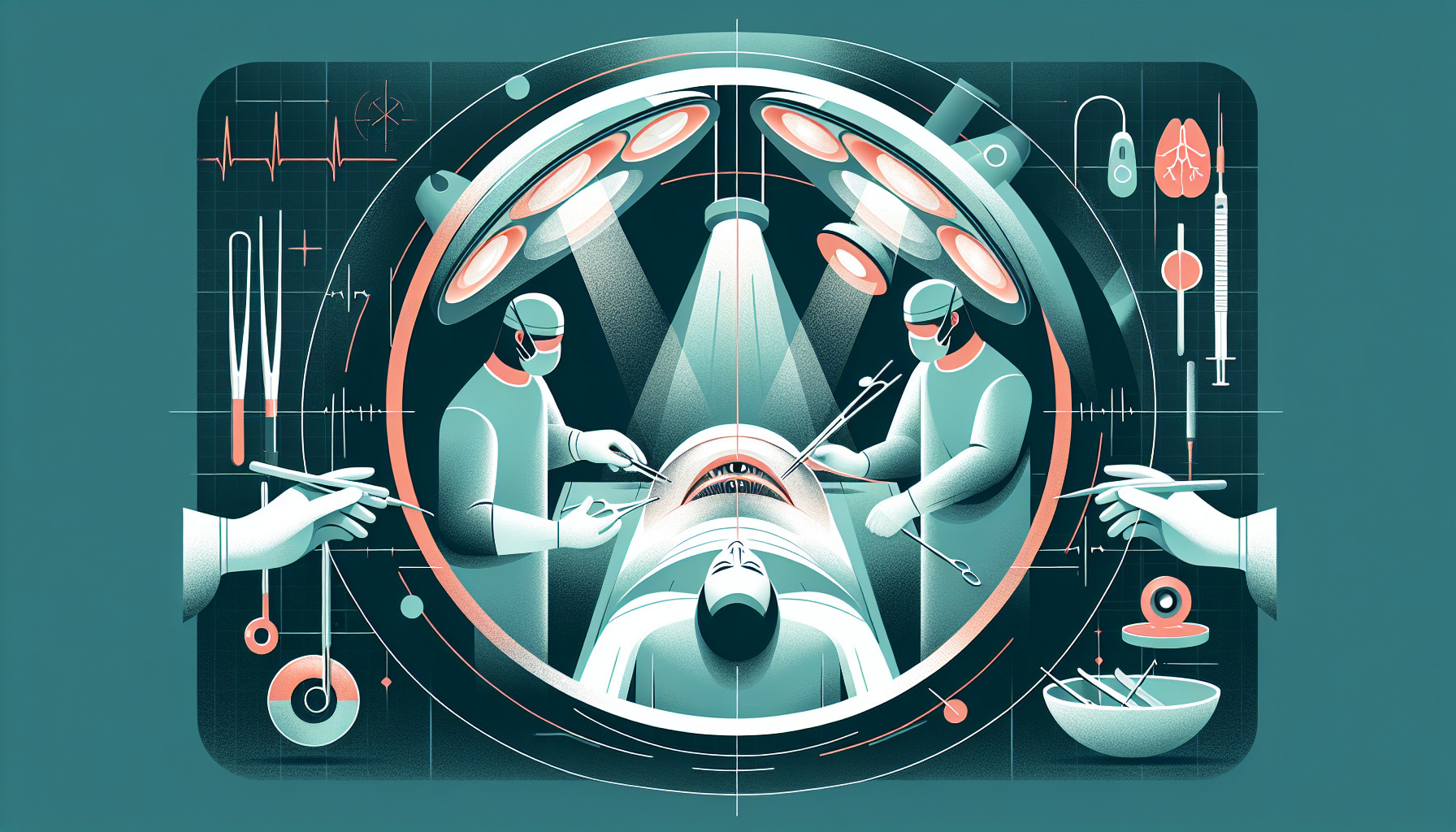Our Summary
This research paper discusses how to effectively perform cataract surgery on patients with exfoliation syndrome, a condition where skin-like material peels off the eye’s lens. It emphasizes the importance of thoroughly evaluating the patient’s condition before the surgery, particularly the extent of pupil dilation and the health of the zonules (tiny fibers that hold the eye’s lens in place).
When performing the surgery, the opening made in the lens capsule should be about 5.5 mm, and all steps should be taken to reduce any stress on the zonules. Surgeons should be proficient in different techniques of removing the lens nucleus (the innermost part of the lens) and should consider using devices to support the lens capsule if needed.
After the cataract has been removed, the remaining lens material should be cleaned up from the side and any remaining lens cells should be removed to reduce the risk of the lens capsule contracting post-surgery.
FAQs
- What is the importance of knowing the degree of pupil dilation and zonular integrity in cataract surgery?
- How should the intraoperative maneuvers be designed during cataract surgery in exfoliation syndrome?
- What are the considerations for cortical cleanup in cataract surgery for exfoliation syndrome?
Doctor’s Tip
One helpful tip a doctor might tell a patient about cataract surgery is to follow all preoperative instructions carefully, such as avoiding eating or drinking before the surgery as directed. It is also important to inform the surgeon about any medications or health conditions you have, as this can affect the surgery and recovery process. Additionally, be sure to attend all follow-up appointments and report any unusual symptoms or changes in vision to your doctor promptly.
Suitable For
Patients who are typically recommended for cataract surgery include those who have significant vision impairment due to cataracts, difficulty with daily activities such as driving or reading, and those who have cataracts that are affecting their quality of life. Additionally, patients with certain medical conditions such as diabetes or other eye conditions may also be recommended for cataract surgery. It is important for patients to have a thorough evaluation by an ophthalmologist to determine if cataract surgery is the best treatment option for them.
Timeline
Before cataract surgery:
- Patient undergoes a comprehensive eye exam to determine the severity of cataracts and assess overall eye health.
- The surgeon discusses the procedure, potential risks, benefits, and expected outcomes with the patient.
- Preoperative testing may be done to measure the curvature of the cornea, determine the power of the intraocular lens to be implanted, and assess the health of the eye.
- The patient may be prescribed eye drops to reduce the risk of infection and inflammation before and after surgery.
- The patient is instructed on how to prepare for surgery, including fasting before the procedure and arranging for transportation to and from the surgical center.
After cataract surgery:
- The patient may experience mild discomfort, blurred vision, and sensitivity to light immediately after surgery.
- The surgeon may prescribe eye drops to prevent infection, reduce inflammation, and promote healing.
- The patient is advised to avoid strenuous activities, rubbing the eyes, and getting water in the eyes during the initial recovery period.
- Follow-up appointments are scheduled to monitor healing progress and assess visual acuity.
- The patient may need to wear a protective shield over the eye while sleeping to prevent accidental rubbing or pressure on the eye.
- Vision gradually improves over the following weeks as the eye heals and the brain adjusts to the new intraocular lens.
- The patient may be advised to wear sunglasses to protect the eyes from UV exposure and glare during the recovery period.
What to Ask Your Doctor
What are the potential risks and complications of cataract surgery in my specific case, considering I have exfoliation syndrome?
Can you explain the different options for intraocular lens implants and help me choose the best one for my needs?
How will my vision be affected immediately after surgery, and what is the expected timeline for recovery and improvement?
Will I need to use any special eye drops or medications before or after surgery, and for how long?
What postoperative care instructions should I follow, and when should I schedule follow-up appointments?
How will my overall eye health be monitored after cataract surgery, and what signs should I watch for that may indicate a complication?
Are there any lifestyle changes or precautions I should take to protect my eyes and enhance the success of the surgery?
What is your experience and success rate with cataract surgery in patients with exfoliation syndrome, and do you have any specific recommendations based on that experience?
Can you explain the procedure in detail, including any steps or techniques you plan to use to ensure the best outcome for my eyes?
Are there any additional resources or information you recommend for me to learn more about cataract surgery and what to expect during the process?
Reference
Authors: Crandall AS. Journal: J Glaucoma. 2018 Jul;27 Suppl 1:S102-S104. doi: 10.1097/IJG.0000000000000925. PMID: 29965904
